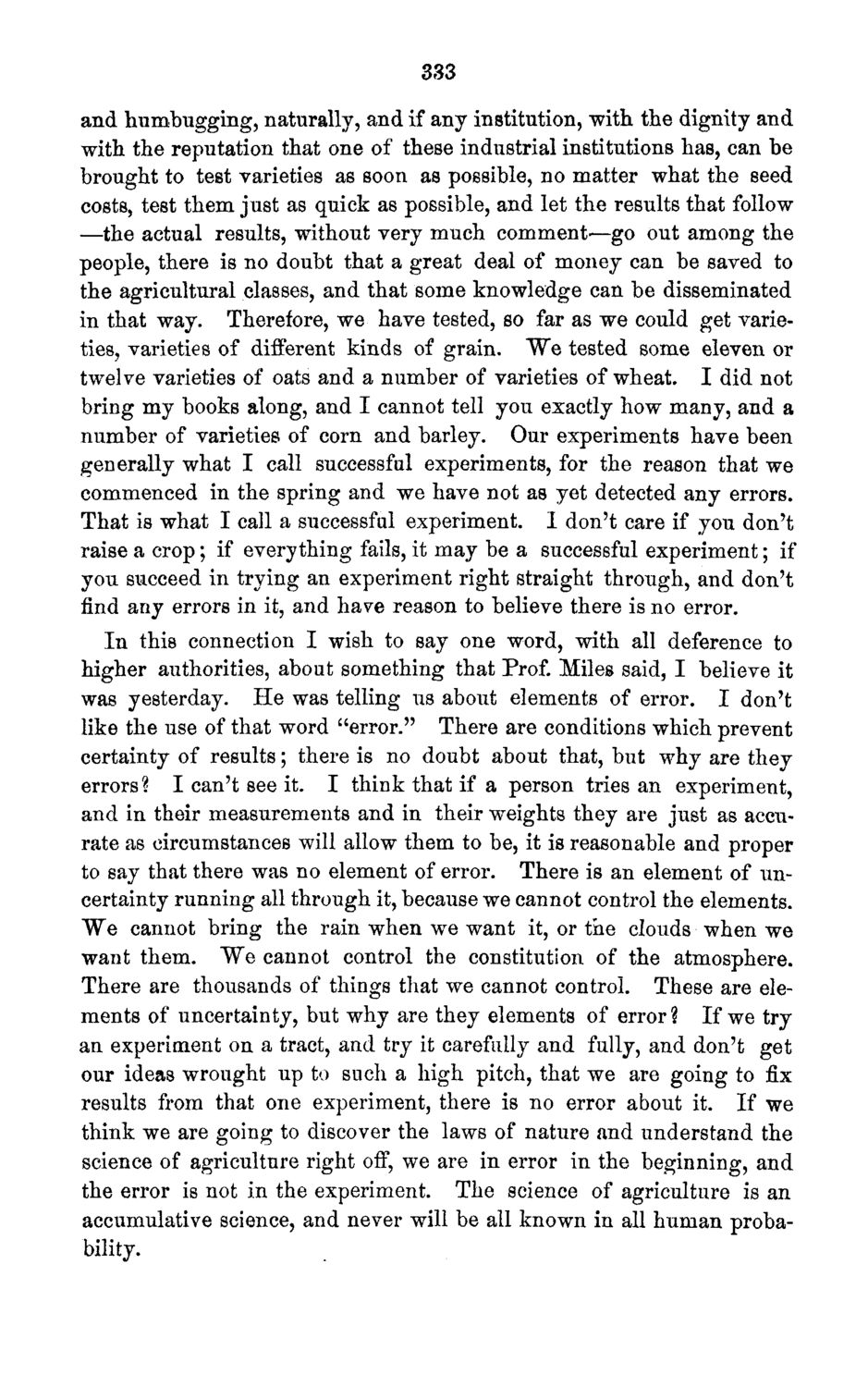| |
| |
Caption: Board of Trustees Minutes - 1871
This is a reduced-resolution page image for fast online browsing.

EXTRACTED TEXT FROM PAGE:
333 and humbugging, naturally, and if any institution, with the dignity and with the reputation that one of these industrial institutions has, can be brought to test varieties as soon as possible, no matter what the seed costs, test them just as quick as possible, and let the results that follow —the actual results, without very much comment—go out among the people, there is no doubt that a great deal of money can be saved to the agricultural classes, and that some knowledge can be disseminated in that way. Therefore, we have tested, so far as we could get varieties, varieties of different kinds of grain. "We tested some eleven or twelve varieties of oats and a number of varieties of wheat. I did not bring my books along, and I cannot tell you exactly how many, and a number of varieties of corn and barley. Our experiments have been generally what I call successful experiments, for the reason that we commenced in the spring and we have not as yet detected any errors. That is what I call a successful experiment. I don't care if you don't raise a crop; if everything fails, it may be a successful experiment; if you succeed in trying an experiment right straight through, and don't find any errors in it, and have reason to believe there is no error. In this connection I wish to say one word, with all deference to higher authorities, about something that Prof. Miles said, I believe it was yesterday. He was telling us about elements of error. I don't like the use of that word "error." There are conditions which prevent certainty of results; there is no doubt about that, but why are they errors? I can't see it. I think that if a person tries an experiment, and in their measurements and in their weights they are just as accurate as circumstances will allow them to be, it is reasonable and proper to say that there was no element of error. There is an element of uncertainty running all through it, because we cannot control the elements. We cannot bring the rain when we want it, or the clouds when we want them. We cannot control the constitution of the atmosphere. There are thousands of things that we cannot control. These are elements of uncertainty, but why are they elements of error? If we try an experiment on a tract, and try it carefully and fully, and don't get our ideas wrought up to such a high pitch, that we are going to fix results from that one experiment, there is no error about it. If we think we are going to discover the laws of nature and understand the science of agriculture right off, we are in error in the beginning, and the error is not in the experiment. The science of agriculture is an accumulative science, and never will be all known in all human probability.
| |